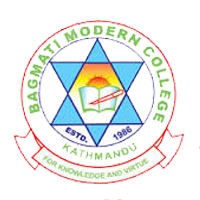Overview
Ten Plus Two (+2) Management at Triton International College, Koteshwor
Ten Plus Two (+2) Management at Triton International College (Triton SS/College), Koteshwor follows the National Examinations Board (NEB) framework for Grade 11 and 12. The stream helps students develop a base in accounting, economics, business studies, and communication, with options that include Mathematics, Computer Science, Hotel Management, or Social Studies as per NEB subject baskets.
You study business fundamentals that prepare you for BBS, BBA, BBM, BHM, BIT, CA foundation, and related routes. The plan blends theory, numericals, presentation practice, and project writing so you learn to interpret data and explain ideas in a clear format.

Highlights
-
NEB-affiliated Management stream for Grade 11–12.
-
Core study in Accountancy, Economics, Business Studies, and English.
-
Optional subjects such as Mathematics, Computer Science, or Hotel Management.
-
Internal assessments, presentations, and NEB board examinations.
-
Guidance on goal setting, note-making, and exam planning.
Curriculum Details
The NEB Management curriculum spans two years with compulsory and optional subjects.
Grade 11 (typical pattern)
-
Compulsory Nepali
-
Compulsory English
-
Accountancy
-
Economics
-
One from: Business Studies / Computer Science / Hotel Management / Mathematics
-
Social Studies may be scheduled based on subject choice
Grade 12 (typical pattern)
-
Compulsory Nepali
-
Compulsory English
-
Accountancy
-
Economics
-
One from: Business Studies / Computer Science / Hotel Management / Mathematics
-
Social Studies and Life Skills as per NEB plan
Accountancy introduces journal entries, ledgers, trial balance, adjustments, and final accounts. Economics covers micro and macro concepts with graphs and numerical interpretation. Business Studies explains organization types, functional areas, and basic legal ideas. Mathematics, if selected, strengthens quantitative reasoning; Computer Science supports digital fluency; Hotel Management introduces service operations and record keeping.
Assignments include ledger preparation, cost sheets, supply–demand graphs, short memos, and presentations. Teachers run caselets on pricing, budgeting, and HR basics to connect topics with everyday scenarios.
Objectives
-
Build a solid base in accounting, economics, and business operations.
-
Improve numerical accuracy, document formatting, and presentation skills.
-
Help students plan routes into BBS, BBA, BBM, BHM, BIT, or CA foundation.
-
Encourage ethical practice, punctual submission, and clear communication.
Scope
Graduates of +2 Management can apply to bachelor-level management programs and sector pathways in Nepal. The stream also supports entry roles that value bookkeeping, spreadsheet skills, and basic office communication. Students who add Mathematics or Computer Science improve readiness for programs that include statistics or IT modules.
Learning Outcomes
By the end of Grade 12, students typically can:
-
Prepare basic financial statements and reconcile common errors.
-
Read economic tables and graphs and explain short answers using data.
-
Write organized business notes, emails, and short reports.
-
Use spreadsheets for tabulation, charts, and simple analysis.
-
Present case findings with clear slides and speaker notes.
Skill Development Modules
-
Accounting Practice: Ledger drills, bank reconciliation, depreciation, and inventory methods.
-
Business Communication: Letters, emails, minutes, and short reports in a clean format.
-
Quantitative Tools: Spreadsheet formulas, charts, and basic statistics where relevant.
-
Presentation Skills: Slide structure, sequencing, and time control.
-
Project Writing: Topic selection, data collection, references, and annex preparation.
Teaching Methodology
Teachers follow a board-focused plan with lectures, tutorials, and exercises. Students receive practice sets for accounting, short-answer drills for economics, and written tasks for business communication. Group presentations help you learn division of work, peer review, and time discipline. Internal tests mirror NEB boards so you gain exam familiarity early.
Admission Requirements
Applicants must have passed SEE or equivalent. The college expects a minimum GPA of 1.6 with D+ in all subjects for the Management stream. Admission opens soon after national results are published. Students submit the application form, SEE mark sheet, character certificate, and other documents as stated in the notice.
Career Opportunities
Management graduates pursue bachelor-level study in business and hospitality or take entry roles in offices that need bookkeeping, store control, front desk support, or documentation. Students targeting CA, ACCA, or banking routes start early with reading lists and practice sets aligned to their goals.
Scholarships and Financial Aid
Scholarships may consider SEE scores, entrance results, district/province achievements, or internal performance during the academic year. Each intake cycle publishes criteria, documents, and deadlines. Students should track the current update and apply within time.
Why Choose This Course?
Students who want clear business basics select this stream. The plan keeps a steady rhythm of accounts work, economics graphs, and practical writing, which supports bachelor admissions and early office exposure. Optional subjects let you shape the profile toward analytics, IT, or service operations.
Conclusion
Ten Plus Two (+2) Management at Triton International College follows NEB standards and builds readiness for business degrees and entry roles. The curriculum balances accounting drills, economic reasoning, and communication skills. Applicants should verify seat availability, sectioning, and scholarship terms from the latest admission notice before submission.



















